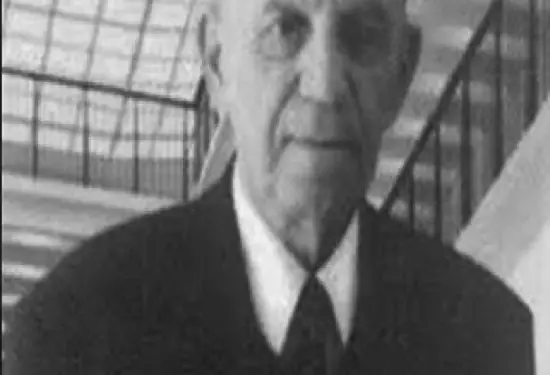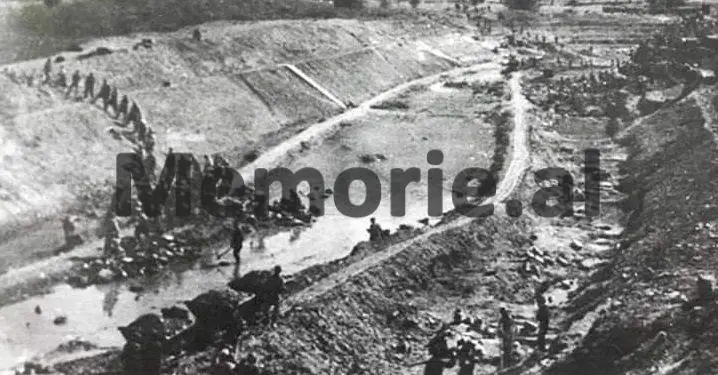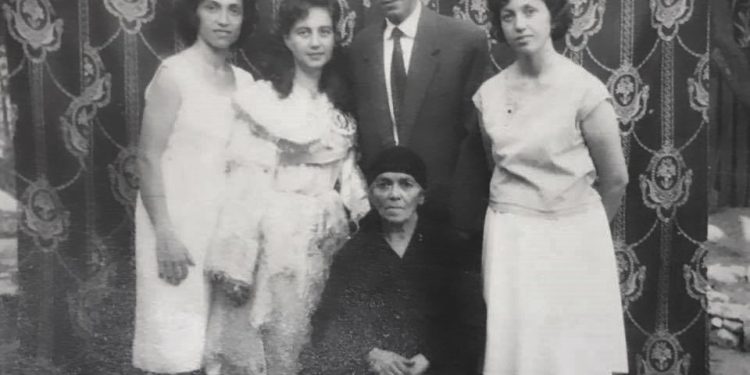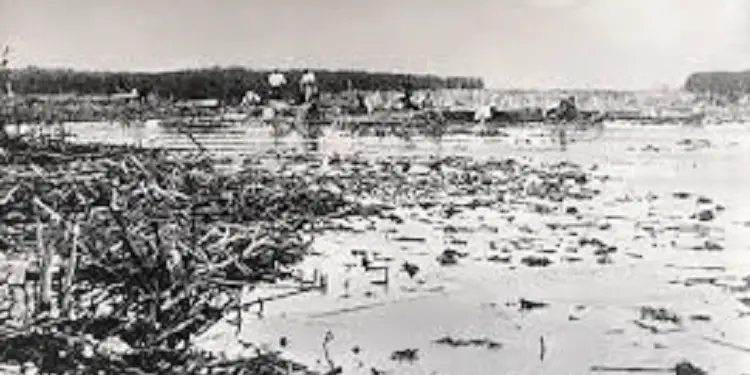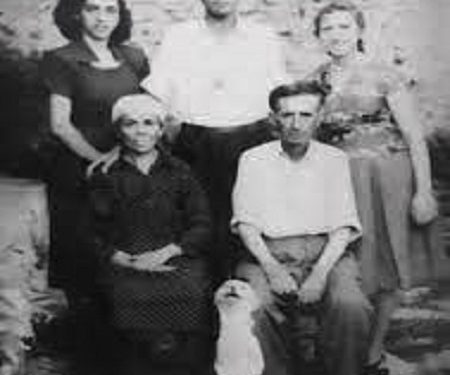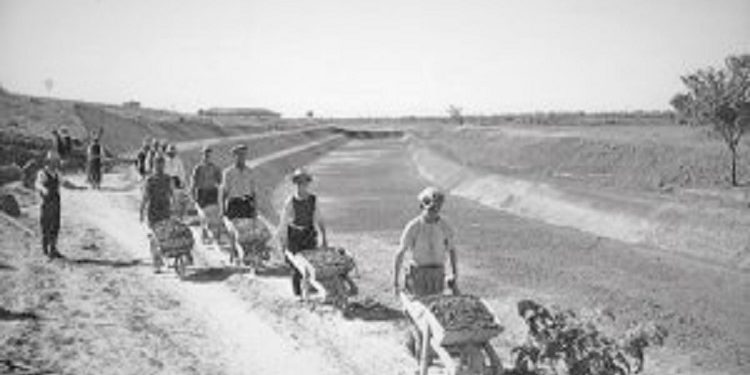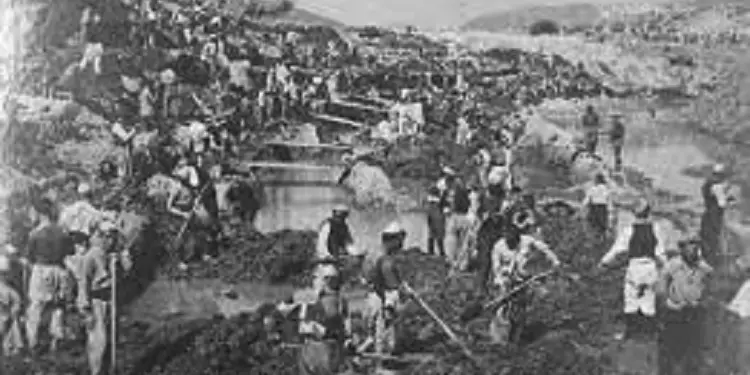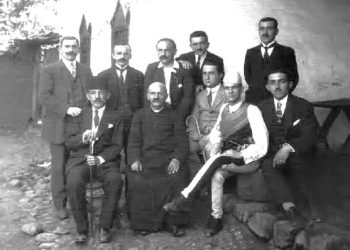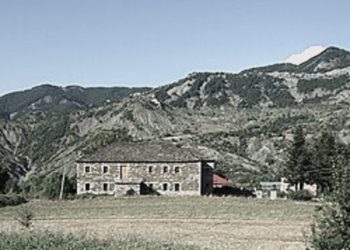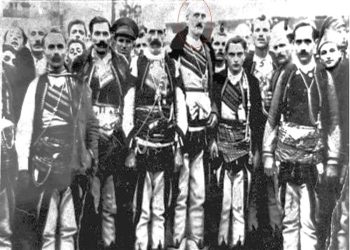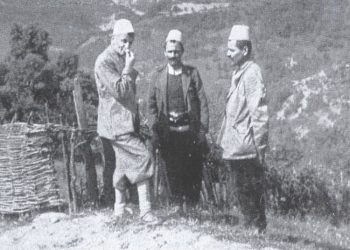By Makensen Bungo
The first part
Memorie.al / Makensen Bungo were born on April 14, 1926, in the city of Elbasan, where his family is from. He was arrested by the communist regime in 1946 and on October 12 of the same year, the Military Court of Elbasan declared him guilty of ‘crimes against the state’ and sentenced him to 5 years of imprisonment, the loss of electoral rights for 5 years’ time, as well as confiscation of property. The accusation of ‘agitation and propaganda’ was all fabricated and was considered a crime against the state, because he had said in various conversations that: “Kosovo is enslaved…”! After his conviction, on February 26, 1947, the Executive Committee of the Elbasan Center Subprefecture ordered the seizure of all his property, movable and immovable. Makensen Bungo was released from prison in 1950, after experiencing the brutal torture of the communist dictatorship’s investigation and seeing death with his own eyes while serving his sentence, in Maliqi Swamp, in the infamous Vloçishti camp, etc. After his release from prison, he completed the “Normal” school in the city of Elbasan and then continued his higher studies at the University of Tirana, Faculty of Languages and Literature, by correspondence. Even when they gave him the right to teach according to graduation, Makensen was sent to deep areas in the villages of Tepelena, Gjirokastra and Fier, but during the entire period of the communist regime of Enver Hoxha and his successor, Ramiz Ali, he was not allowed to to publish. Makensen was able to publish only after the fall of communism and he is the author of several books, such as: 1- ‘Monograph for Abaz Kupin’ (2001). 2 – “The Swamp of Death” (published in 1996 and reprinted 5 times – in 2009, it was also published in English). 3 – ‘The woman in black’ – Volume of stories (2008). 4 – “Journey with sighs” – Roman (2009). 5 – “Kosovo Mother” – poem (2003). 6 – ‘Graves’, poem…etc. 7- “Musine Kokalari”. After the 90s, Bungo immigrated to the USA and he was one of the tireless collaborators for the diaspora press, especially for the newspaper ‘Dielli’ in the USA, where he contributed studies, articles, poems, etc. . Makensen Bungo passed away on September 15, 2018, in a New York hospital, at the age of 92. The writing that we have selected here for publication is taken from his book “The Swamp of Death”, where he realistically described the events that took place in the Vloçishti camp and the Maliqi Swamp, where he served his sentence in the first years after the war along with hundreds of political prisoners from around the country, who worked in inhumane conditions to drain those swamps.
FRAGMENT FROM THE NOVEL “SWAMP OF DEATH”
The sky was still starry and the dawn was far off when the whistles of the policemen were heard in the camp. It was the awakening. Then the policemen appeared in every shack, where they slammed the doors, shouting:
– Get up! Get up! Get out! In line for two!
The prisoners, exhausted by the long journey, had not had enough sleep. Those earlier were used to this kind of awakening and quickly got up, dressed and went out. The five also went out into the middle of the camp, with the others.
– Will it be possible to cope with life in this type of camp? Hasan asked.
– These are the camps of the dictatorship, – said Sopot.
– We are in a police state, – vented Ahmeti.
Daut Burra was coming behind them.
– Do you know why they woke us up so early? – he asked ironically. And without receiving an answer, he added:
– That sleep makes you fat!
– Laziness pays with the head, here, – remarked Sopot sadly.
The prisoners of Korça and Durrës, as soon as they came out of the barracks, lined up two by two, in the place assigned to them by the command of the camp. The prisoners of Elbasan gathered on one side of the camp, near the barracks, and were waiting to hear what they were going to say. The commander of the camp went to them, with Captain Zenelin and two policemen. With the prisoners of Elbasan, the commander formed a brigade, which was called the third brigade.
Brigade commander, the commander appointed an ordinary prisoner, who had killed a young man in action. He divided the brigade into two companies. At the head of each one he put a prisoner, as company commander, from those recommended by the prison command, when he had sent them to work. In one company, he assigned Myqerem Kola, who had been sentenced for deficit, about thirty years old.
After keeping him for some time in the ordinary prison, he was transferred to the political prison, or, as it was called then, to the prison of “enemies of the people”.
At first, Myqerem approached Vullnet and his friends. But later they were cold and then did not speak to him at all. They had realized that he had become a tool of command. One day Volulneti got into a fight with him and after two days, he beat him badly, because Myqerem had offended him. The prison command sentenced Vullnet to one month in the dungeon. But still he was not satisfied. He was waiting for the opportunity to take revenge himself.
Finally, the commandant showed the prisoners the two policemen assigned to lead the two companies. After this organization, the commander assigned them the place where they would line up.
Capt. Zenel then came before the prisoners and, waving the stick in his hand in the air, shouted loudly:
– Quickly line up! A head look at you! Just a head!
The prisoners were trying to line up, but they couldn’t take the lead. The row was long and, instead of fixing it, they broke it. Then Captain Zeneli, waving his stick in the air, shouted in a shrill voice:
– You don’t know how to line up, do you? I teach you!
And he started to shoot the prisoners with his stick and fists as much as his arm could hold. Lining up, one of the prisoners, so as not to put his feet in a puddle of mud, stepped back a little. Captain Zeneli saw him and rushed at him, hitting him hard with a stick, until the convict fell into the mud. Then he put one leg over his body and continued to beat and kick him wildly. As he took out the duffle, he said:
– Stay here, stink!
And he got to the top of the line. The prisoner struggled to his feet. His head was covered in mud and one cheek, cracked, with blood.
All the prisoners were given a ration of dry and black bread and a bowl of soup. With them in hand, the prisoners dispersed to the camp and began to eat breakfast.
The five of them sat down. Next to them sat Qamil Daja and Vasil Lashi. A little further, Shaban Flaka sat down with Daut Burra and Sopot’s cousin. The two Pekingese, as always, sat together, on the side.
Sala split the bread in half and, seeing that it was like gravel, shook his head and said:
– Why, will we eat this bread?
But Ahmet Kurti cut him off:
– Don’t you remember that they brought us here to feed us with bread?
While the prisoners ate breakfast, the policemen, and batons in hand, walked around the camp, trying to catch a word.
In the village of Vloçisht, which was built on the side of a hill, not far from the camp, the first lights began to be lit. The camp took the name of this village. A name unknown before, but which would terrify these prisoners for the rest of their lives, every time they remembered it. It would make even the family members shudder. The history of the dictatorship would mention it as one of the first camps, where people worked like animals and were treated worse than slaves. Extermination camp.
The camp was huge. In front of it was the main door, consisting of two iron gates. Near the door was a bodyguard, where stood a policeman armed with a machine gun. Inside the camp, to the left of the door, was the kitchen, smoke was constantly coming out of its chimney.
Nearby was the water tank, supplied by an autobot from a distant village. After this came a row, one after the other, four long and high barracks, built of iron and covered on the sides and top with raincoats.
In between them was a small shack, used as an infirmary, where there were two wooden beds, a table and an old bench. To the right of the door was a small building, on the door of which a clean hand had written the word, ‘Library’. In the middle of it was an old table, covered with meringue: two benches stood at the sides.
Outside the camp, to the right of the door, was a tall building with two partitions. One served as the camp command offices and the other as a meeting hall. Next to it was the building where the policemen slept.
The entire camp was surrounded by a fence of five rings of barbed wire, over three meters high. Next to this fence, from the outside, every five meters, bodyguards over four meters high were erected, in which policemen stood day and night with helmets on their heads, with automatic weapons on their chests and with revolvers and bombs in their belts. At their feet they had a machine gun with several combs of cartridges.
In the camp, even in the darkest night, you could see well, because electric lamps were placed everywhere: above every door, in every corner of the barracks, both inside and outside, between the barbed wire, on every bodyguard. Besides these, in the middle of the camp, on a long pole, four large electric lamps were placed on all sides.
* * *
The dawn began to break the darkness of the night, which possessed a deathly silence beyond the Maliq marsh. From Dry Mountain, a silvery light began to spread over the peaks of the mountains and over the surrounding hills. The many stars, high in the sky, slowly began to fade, light.
Unperturbed, as always, the moon stood high in the sky and silently gazed at that crowd of people near the Maliq marsh. Did you pity them? The moon sees everything, but does not talk about anything!
The prisoners ate their breakfast quickly and lined up for two. The prisoners of Elbasan waited in line, anxiously, for the departure, wondering how the work would be. With their hands in their pockets, because they were cold. With the collars of their coats turned up, so as to block the sound of that icy morning.
None of the prisoners spoke in line. It was forbidden. They quickly realized this and no one said a word.
The guards, batons in hand, hovered around the prisoners like hungry wolves around a pack, ready to shoot anyone who spoke or moved a little.
At this time, a prisoner, from the first company, who was an old man, while standing, fainted and fell to the ground? The surrounding prisoners, among them Volulneti and Sala approached him to help him, but the police rushed at them and shot them with batons and kicked them, shouting:
– Go away! Don’t help him!
The prisoners, at first, were confused, but when they saw the stern policemen over their heads, they left.
– What about this? Sala asked in surprise.
– This is the dictatorship of the proletariat, – Will replied.
One of the policemen, laughing, approached the prisoner and shook his leg, but he was not mentioned at all. He remained there even when the prisoners left for work, lying on the ground, unconscious, in the middle of the camp. The man turned into a black spot for those who looked at him from afar.
The policemen, who were in charge of supervising the two companies of Elbasan, came before them and made the appeal. Everyone was quick to respond. An elderly prisoner, whose ears were beginning to fall off, did not immediately respond. The policeman interrupted the appeal and called. The prisoner turned pale in the face. He left the line and approached the policeman.
– I’m sorry, policeman, – he said, – I can’t hear well with my ears.
That’s how much you care about your ears, – said the policeman and shot him with two hard slaps, one after the other.
He spat in his face angrily and shouted:
– Stink! – Other times he opened his ears well!
When the appeal was over, all the policemen, according to the companies, reported to Capt. Zenel that the prisoners had gone to work, without exception.
Zenel ordered the departure. Those from Korça and Durrës prisons left first. Those from Elbasan continued after them. The company to which the five were a part, came to the bottom altogether. The departure was made almost at a run, so that they could arrive at the workplace as soon as possible. Woe to him who lagged behind or broke the line. The policeman’s baton crackled on him.
One of the prisoners of Tirana stayed behind. The policeman approached him quickly and shot him with the stick he was holding. But the other one did not hurry.
– Run! – shouted the policeman. – Run! Follow my friends, because I killed you!
– I can’t, – said the prisoner, – I can’t! I told you.
– Run! – shouted the policeman again, shooting him with force. You do this every day. Run!
And continued to shoot him cruelly.
The prisoner did not try to defend himself, but while the policeman was shooting him, he said:
– He shoots in vain! I can’t run, because my toes were cut off in the interrogator, and below, on the soles of my feet, I have no flesh, only bones…!
Later, the police got used to this man: they beat him and left him at the end of the line. At first the prisoners walked on dry land. Then they began to tread on soft ground. They were approaching the swamp. The closer they got to it, the more the ground became softer, wetter, more mushy, – slush.
The prisoners, who had taken this route the other days, were not impressed. Those in Elbasan prison started to get scared. At first they tried to stay safe, but when they saw that it was impossible, they also walked like the others. His shoes were filled with slush. His socks got wet.
His pants, down to his knees, became living mud. Now the prisoners were running across the marsh. It wasn’t just the slush and mud that got in the way, but the marsh leeches that tangled around their feet. However, the guards shouted, threatened, beat.
Where were these people protected before?!
– Who knows how long the road will be, – said Sala.
– It may be long, because the workplace is still not visible, – Volunneti answered.
The prisoners of Elbasan, when they left, were also given work tools with them: picks, shovels, wheelbarrows and tokmakas. Worst of all were those who were tasked with carrying handcarts. These at first they put off as usual. But when they began to walk through the swamp, they became filled with slime and weighed down with lead. Some started pulling them from behind. Others carried them on their backs.
The prisoners, walking from time to time, something stung their feet. They could not stop, but when they arrived at the workplace, they lifted their pants and saw to their surprise that leeches of various sizes were hanging from the legs, which were calm and thirsty, drinking the last drop of blood they had left. . Sopot caught a leech and pulled it to get rid of it, but it was impossible. A prisoner told him:
– Don’t try in vain! It is not removed. She falls to the ground by herself, as she is full of blood!
As soon as they arrived at the workplace, the prisoners of Korça and Durrës immediately started work. They had been working there for days and in the middle of the swamp they had opened a long and very wide canal. The depth was a man’s paint. When they entered it, they were no longer visible. Very high embankments were erected on both sides of the canal.
The prisoners began work on deepening the channel. They dug the earth and transported the soil to the embankment. As it deepened, the canal was filling up with water. Here the prisoners worked barefoot, with their trousers rolled up. Where there was a lot of water, even with only underwear.
The sector where we would also work was designated near this place. Memorie.al
The next issue follows




